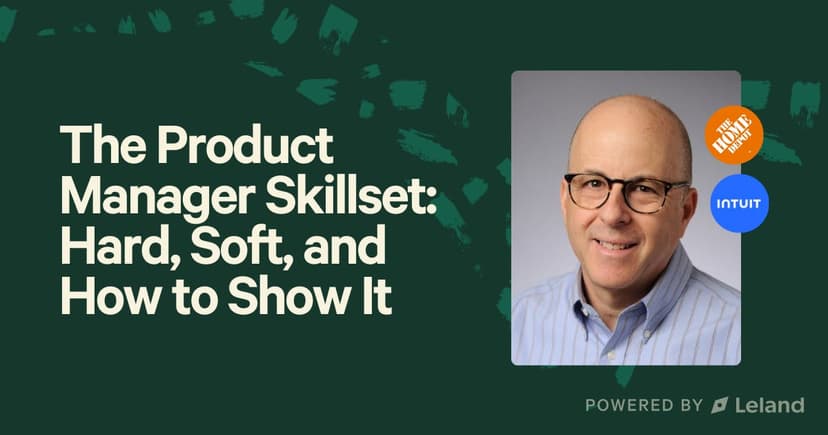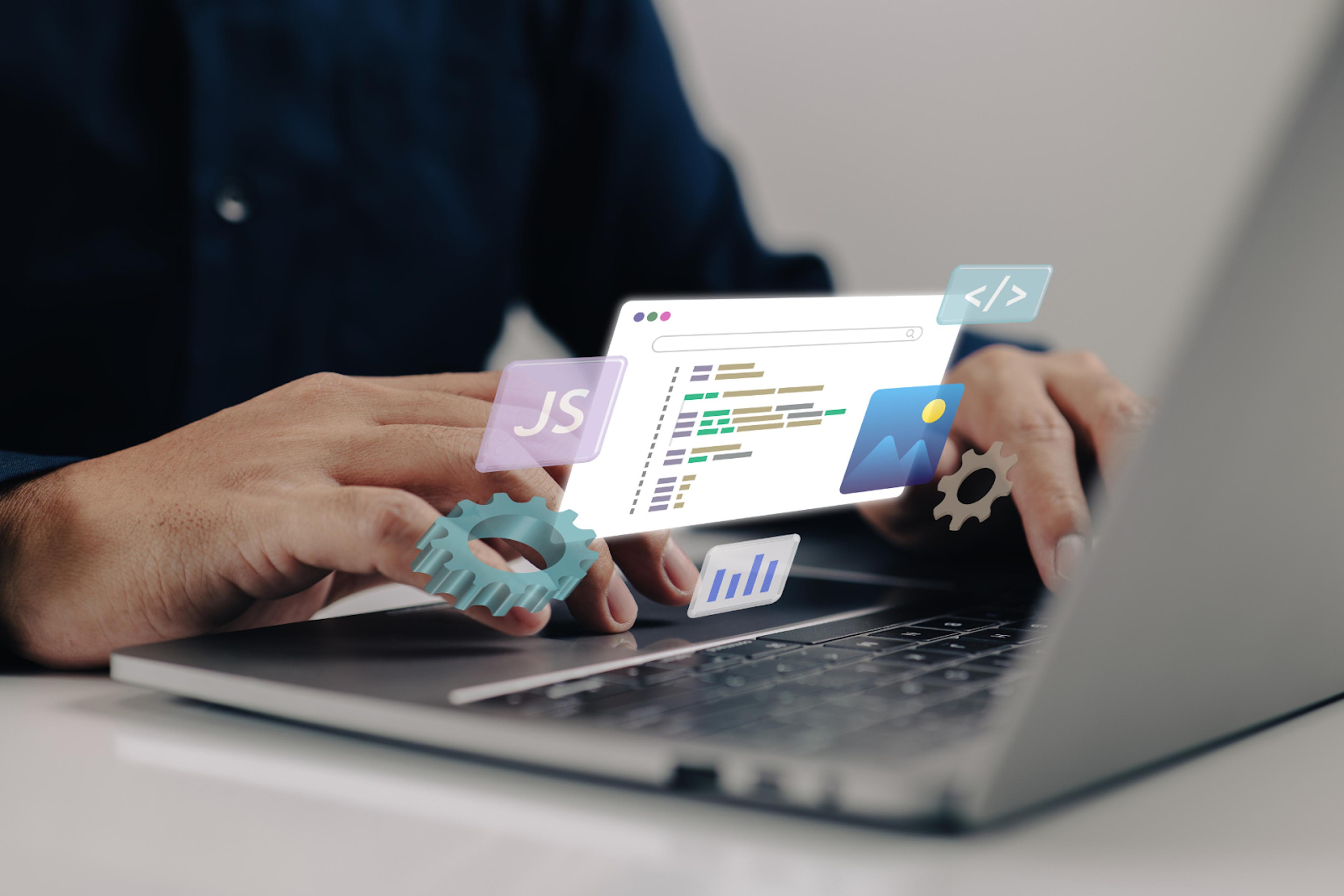Finance Product Manager Career Guide: Skills, Paths, and Interview Tips
Curious about becoming a product manager in financial services? This guide covers essential skills, career paths, and interview tips for breaking into finance product management – from fintech to trading platforms. Learn how to craft your PM story and stand out in a competitive market.

By Rohan P.
PM Coach for people on VISA & non-traditional backgrounds | CMU alum
Posted August 5, 2025

Join a free event
Learn from top coaches and industry experts in live, interactive sessions you can join for free.
Table of Contents
Curious about becoming a finance product manager in today’s fast-evolving financial services industry? This guide covers the essential skills, career paths, and interview strategies you’ll need to break into financial product management – from working on AI-powered tools in fintech to launching new financial products in global trading platforms. Whether you’re switching from engineering, operations, or other industries, this is your roadmap to success.
I attribute a major part of my successful transition from engineering to product management roles in top-tier financial industry firms to having a mentor. Guidance gave me a deep understanding of what works, and saved me from years of trial and error.
If you're looking for a role that merges strategic thinking, cross-functional collaboration, and data analysis without writing code, the finance product manager role might be your perfect match. I was drawn to working with product teams across functions like compliance, engineering, and design to define strategic direction and create high-impact solutions that meet customer needs and improve operational efficiency.
Before you start applying to jobs, it’s critical that you understand the product development process in the finance sector. This clarity ensures you're making an informed decision and allows you to craft a PM story aligned with current demands in the financial systems space.
What Is a PM in Finance?
Financial product managers are responsible for developing and managing products like mobile banking apps, trading dashboards, and remittance platforms. These products handle large volumes of financial data, so PMs must work closely with legal and compliance teams, engineering, design, and operations to ensure regulatory compliance and smooth execution.
At Western Union, I led product strategy for a remittance kiosk used globally. At BlackRock, I managed a trading workflow dashboard for institutional clients, helping the team align with market demands and internal compliance standards. These experiences taught me the importance of working with compliance teams to ensure that all products comply with the complex regulatory landscape of the financial industry.
Key Responsibilities of a Product Manager in Financial Services
A finance product manager operates at the core of the financial services ecosystem, bridging product vision with execution. Their core responsibilities include:
- Leading cross-functional teams across engineering, operations, design, and compliance teams
- Driving product strategy that aligns with both user expectations and regulatory compliance
- Conducting data analysis and A/B testing (using tools like Amplitude, Optimizely, and Quantum Metrics) to optimize customer satisfaction and reduce customer pain points
- Managing product backlogs and the overall product lifecycle, including prioritization based on market demands
- Partnering with legal and compliance teams to ensure financial products comply with the current regulatory landscape
- Using risk management skills to anticipate and manage risk in sensitive data environments
In today’s evolving finance sector, product managers must not only own product development processes but also remain proactive in adapting to industry trends and market shifts.
Must-Have Skills for Financial Product Managers
Succeeding in financial product management requires a blend of technical fluency, strategic thinking, and domain expertise. Essential skills include:
- Industry knowledge in trading, banking, payments, and financial systems
- Technical literacy: understanding APIs, data pipelines, and how to analyze data for informed decision making
- A customer-centric mindset grounded in user interviews, usability testing, and feedback loops
- Mastery of data analytics and experimentation to drive outcomes and measure a product’s value proposition
- Strong communication and stakeholder management to align product teams and executive leadership on strategic vision
- Awareness of potential risks and the ability to work within a tightly regulated environment
These competencies enable PMs to deliver both innovation and compliance, especially in high-stakes domains where financial risks and operational efficiency go hand-in-hand.
How to Become a Finance Product Manager
There are several paths into the finance product manager role, depending on your background and goals:
1. Transition Internally
If you're already in the financial industry, seek out a product manager or a product owner on your team. Offer to shadow their work, contribute to early-stage projects, and attend cross-functional planning meetings. Gaining a deep understanding of their workflows will shorten your learning curve.
2. Consider a Postgraduate Program
Pursuing an MBA or product management certification can help develop your project management, business, and market analysis skills. These programs also help you build a network of peers and mentors, many of whom may already work in financial services or fintech.
3. Enter Through a Tangential Role
Many PMs start as an associate product manager, business analyst, or technical program manager. These roles allow you to gain experience working on existing products, collaborating with marketing teams, and making decisions that impact customer behavior and product outcomes.
Finance PM Interviews: What to Expect
Interviewing for a financial product manager position is about more than product intuition – it’s about demonstrating clarity on financial data, regulatory requirements, and how to build products that meet evolving market trends.
You’ll need to articulate:
- Your product strategy and thought process behind prioritizing user or business needs
- How you’ve collaborated with compliance teams, engineers, or stakeholders in a regulated setting
- A compelling narrative that connects your background to your transition into product management
Here’s an interview pitch I used that reflects this alignment:
"I have X years of experience as a software engineer in the finance industry. Over time, I realized I was more interested in the ‘what’ and ‘why’ behind our product decisions. I started working more closely with design and business teams, leading product discussions and experiments. One change I helped shape improved onboarding by Y%. That experience clicked for me. Now, I’m transitioning to product management, bringing both my technical fluency and domain expertise to the table."
If you are interviewing for a remittance or asset management company and already have experience in the same field, you can highlight in the interview that you have an advantage over someone who does not by sharing some domain-specific stories of problems you have solved. If you do not have prior finance experience, draw parallels between finance and the industry you were in. For eg, highlighting that even though you did not work in finance, you worked closely with Legal and Compliance in your previous role. Also, do your basic homework on the company, products, and their domain, and highlight that you are a quick learner.
Interview Tips for Financial Product Manager Roles
The #1 tip for interviewing for finance PM roles is to ensure that you have your PM narrative well-defined. The PM skill set is less rare than in many other industries, so you differentiate in your story. Here are a few of the things that you should make sure you’re thinking about when preparing for your interviews.
1. Why product management?
We all know that the market is tough right now, and a compelling story is more critical than ever. A well-told story would keep the interviewer engaged (especially when they are hopping from one meeting to another at their work as usual), cast a strong impression, and highlight your skills and achievements. If you do not have prior product experience and have an opportunity to get interviewed for a PM role in a market full of people with prior PM experience, you have one shot to stand out. This “Why PM” answer can make or break your candidacy.
2. Align your story with the PM skillset.
While telling a story is crucial, it should be relevant to the role and company you are interviewing for. Thoroughly review the job description to ensure you list all the required skills for the role. Try to align your story with the necessary skills for the job. If you tell a great story and highlight all the essential parts, the only grounds for rejection are if your story does not align with the PM skill set.
3. Target companies within your industry to maximize your chances.
Aiming for companies within the same industry that you have worked in previously helps you rebrand your prior experience in a new light. Additionally, you have a wealth of domain knowledge to bring, and you can make a strong case that you will get up to speed faster than someone who has not worked in the same industry before. Once you have identified your industry, start by focusing on a niche within that industry.
For example, don’t just target all financial services companies if you have worked in finance before. Focus on a specific niche first, such as asset management within finance or remittance services, and start there. That is the sweet spot. A good idea is to identify your company's competitors in general and target them specifically. Just make sure you have not signed a non-compete agreement with your current or former employer.
Here’s an example interview pitch that I used to land jobs at places like BlackRock and Western Union:
"I have X years of experience as a software engineer in the finance industry. Over time, I realized that I am more interested in the what and the why than in the how. To explore my curiosity, I began working closely with design and business, and even led a few product discussions and experiments. One small change I helped shape improved our user onboarding by Y%, and that experience clicked for me. Now, I’m shifting into product management in finance. My engineering background enables me to work closely with developers, and my finance domain knowledge will allow me to get up to speed faster. Hence, I believe I am a strong fit for the Z company (in finance)."
How to Gain Product Experience Without the PM Title
Often, the most challenging part in breaking into a product management role is having the experience to show that you can do the job. Even and especially if you are trying to get into product from a non-product role, there is a lot you can do to prove your abilities. Here are a few ideas, but get creative!
Work on side projects or capstones
Try working on a side project and showcase how you led it from start to finish, demonstrating the skills and responsibilities of a product manager. We are in the era of AI. Use AI to build something innovative, release it to the market, gather customer feedback, and iterate on it to enhance the customer experience.
Showcase transferable skills
Present areas/stories from your experience where you wore a PM hat even though you did not have the title. Software engineers, Marketing managers, Data Analysts, and many others can showcase skills that align with leadership, effective communication, working with cross-functional teams, and problem-solving, without holding a PM title.
Provide your take on existing products.
Select products (such as software or hardware) that you enjoy using, and thoroughly test them. Highlight the problem they are trying to solve and the pain points you observe. How would you solve those pain points? How would you prioritize features? Act like a product manager for those products and include everything in the form of an article or a Product Requirements Document. Doing this would demonstrate you have what it takes.
Financial Product Management – The Bottom Line
Hopefully, these have helped you lay a solid foundation. Next, you should compare the skills you possess in your current role with the core skills of a product manager. List down the skill gaps. Prioritize which ones are the most important (at this point, you have already started to think like a product manager) and prepare a plan to learn those skills. Remember, you don't have to master every skill; the idea is to be aware and have basic proficiency with all the essential skills required to be a PM. We all improve our skills on the job over time.
If you'd like more tips or hands-on help, I can spend time with you to gain a deeper understanding and provide tailored feedback and recommendations. I specialize in helping individuals secure PM roles even if they are on visas and are running against the clock. Feel free to book a free intro call with me here.
Read more:
- The Top 10 Product Management Consultants & Coaching Services
- How to Write a Powerful Product Management Cover Letter
- The 10 Most Common Product Management (PM) Behavioral Interview Questions
- The 10 Best MBA Programs for Product Management
Finance Product Manager – FAQs
What is the role of a finance Product Manager?
- A finance product manager oversees the development and management of financial products such as banking apps, trading platforms, or payment systems. They collaborate with cross functional teams – including engineering, design, compliance, and legal – to ensure products comply with regulations, meet customer needs, and achieve business goals. The role involves data analytics, risk management, and crafting a clear product strategy that aligns with both market trends and long-term organizational objectives.
How do I become a finance Product Manager?
- To become a finance product manager, you’ll need a mix of domain expertise and product management skills. Many professionals transition from roles like business analyst, engineer, or associate product manager by gaining exposure to financial systems, legal and compliance teams, and existing products. Earning an MBA or product management certification, learning data analysis tools, and developing strong communication and leadership abilities will also help you land roles in the competitive finance sector.
What is the difference between a Product Manager and a finance manager?
- A product manager focuses on building, improving, and launching products through the product development process, working with product teams to address customer pain points and enhance customer satisfaction. In contrast, a finance manager is responsible for budgeting, financial reporting, forecasting, and ensuring the financial stability of the company. While product managers drive a product's success in the market, finance managers oversee the financial health of the organization.
Who is the highest-paid product manager?
- The highest-paid product managers often work in tech and financial services, particularly in roles managing financial products or leading innovative, AI-powered tools. Senior roles like Director of Product or VP of Product at top fintech companies and global financial institutions can earn total compensation packages exceeding $250,000–$400,000 annually, with bonuses and stock options tied to performance and market analysis success.

Written by Rohan
5.0
(16)
Hi, I 'm Rohan - Product Leader | Mentor | Builder of People and Products I began my career as an engineer, deeply curious about how things work and driven to build efficient, scalable solutions. But over time, I found myself wanting to understand more than just the “how”, I wanted to know the "why". Why are we building this? Who is it for? How do we know it’s the right problem to solve? That curiosity led me to start joining product team calls outside of my core responsibilities. I’d listen in, ask questions, and quietly study how product managers thought, communicated, and made decisions. It didn’t take long before I realized this is what I wanted to do. Over the years, I rose to lead initiatives on products that served hundreds of thousands of customers daily. I learned to navigate complexity - aligning cross-functional teams, driving data informed decisions, and solving problems at scale. I'm here to do the same for others. My mentorship style is clear, practical and growth-focused. If you are looking to break into PM or grow faster in your role, I will meet you where you are and help you get where you want to go.
Rohan has helped clients get into organizations like:
Browse hundreds of expert coaches
Leland coaches have helped thousands of people achieve their goals. A dedicated mentor can make all the difference.


























